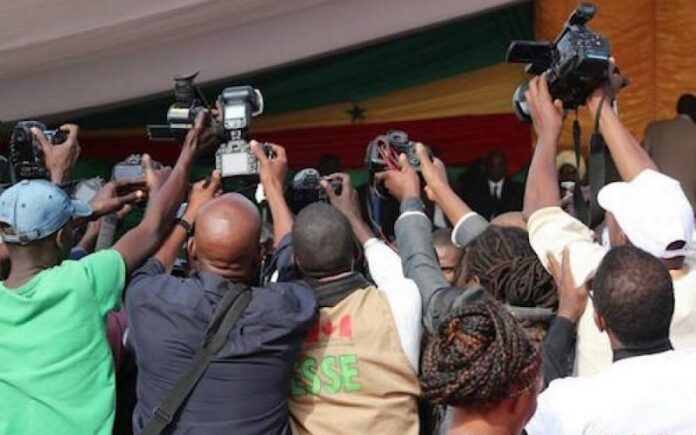Words against Ills in the National Press

I was surprised to find myself, this Monday, on the front page of the daily Le Peuple… The media, not having bothered to ask me for an interview, reprinted one of my old columns, more precisely the one published on March 26, 2024 in the columns of Le Quotidien newspaper, without any precision, thus creating a possible confusion for the reader…
Before going any further, I must make a clarification that would not normally be necessary. But I do know a little about our country, the courtly spirit that characterizes it, the current confusions, the hasty manipulations, the stakeholders in our singular public space, the frequent reversals of jackets and the pledges that some give to each new regime to fit into its good graces. I think I’m sufficiently seasoned in public conversation not to say that I stand by everything I wrote in this column entitled « Faire face ». I believe more today in everything that I said yesterday. That’s not the problem. The problem lies in the cavalier way of doing things, which unfortunately is becoming more and more frequent in our country’s press.
Read the column – The Senegalese Cultural Exception
This episode led me to reflect on the state of the national press. It looks like a vast field of ruins, where mediocrity rubs shoulders with indelicacy when it comes to ethics and deontology. An informed observer with a modicum of honesty knows that the Senegalese press, in its broadest sense, is facing a crisis that has seriously damaged its reputation. And I don’t see the beginnings of even a rethink, the first step towards a possible but much-needed rectification.
It would be illusory to think of achieving democratic maturity without a free, demanding, quality press that is faithful to the initial promise of this sector. Telling the truth, making the facts sacred, showing balance in the treatment of information – these are the broad outlines of what is expected of the « fourth estate », which every vital democracy cannot do without.
If Senegal remains a low-intensity democracy, despite a series of political changes, the press bears some of the responsibility. The methods, practices and positioning of part of the journalistic corps reveal a Senegalese disease in the treatment and dissemination of information.
Read the column – Mali’s « Democratic » Pause
On TV5, the day after the 2019 Presidential election, I pointed out the danger we were facing – in fact, it was already present – with regard to the positioning of two major broadcasting groups, one of which had sided with the majority and the other with the opposition. Things then got worse, and we were treated to a veritable enterprise of manipulation, unabashedly spreading lies and fake news, and promoting a new type of Senegalese, the TV commentator. Often appearing out of nowhere, they accumulate lies and defamatory remarks, excel in the art of telling implausible stories and have managed to infiltrate the heart of the public arena with untruths as their effective weapon. It’s no secret that some of them are paid in proportion to the enormities they spout, the tendentious and salacious remarks they spread about honest citizens. But our society has become so permeable and permissive to lies that nothing seems to stop the herd of open-faced, unabashed liars who flood our media and have become its talking heads.
I regret to say that it has become impossible for me to read most of our newspapers or watch certain television channels, because they are full of mediocre journalists and presenters, incapable of making coherent and substantial statements in any language, and above all reckless because they are ignorant and uneducated. We can all see the level of degradation in the press, and we seem to be complacent about this state of affairs, which has become a danger to our democracy and to living together.
Read the column – The Savana Conclave
The other serious problem we face relates to the partisan nature of some of the press, particularly YouTube channels which, because their business model operates on the basis of the number of « views », normalize outrage, anti-Republican discourse and attacks on human dignity. Insults, conspiracy theories, gravelly accusations, defamation and outright lies are all part of a buzz machine that undermines editorial responsibility and ethics in short. I pointed out to a web TV journalist that in her last twenty-two broadcasts, she invited sixteen guests who were members or supporters of a single political party. She assumed having blithely violated the rules that govern her profession in the name of buzz. Because, she told me, “with them, I get a bigger audience.”
The damage is widespread and deep-rooted, because the public service, made up of talented and professional journalists, does no better in respecting the rules of balance and pluralism. Rts is a blight on Senegalese democracy, and that’s unlikely to change… There are too many words to say about the Senegalese press, but healing its wounds doesn’t seem to be an urgent priority for many.
By Hamidou ANNE / hamidou.anne@lequotidien.sn

